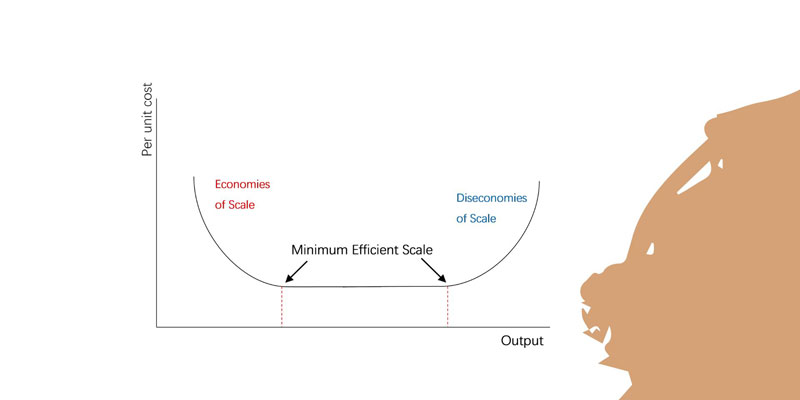
Social Security is a crucial part of retirement planning, providing financial support to millions of Americans. However, the process of claiming these benefits can be tricky, and making mistakes can cost you dearly. Understanding the common errors people make when claiming Social Security benefits can help you avoid them and ensure you get the most out of your entitlements.
What is a Social Security Claiming Error?
A Social Security claiming error occurs when beneficiaries make incorrect or uninformed decisions about when and how to start receiving their benefits. These errors can significantly reduce the amount of money you receive over your lifetime and may impact your financial stability in retirement. By learning about these mistakes, you can make better choices and secure your financial future.
Avoid These 6 Social Security Claiming Errors
Avoiding common Social Security claiming errors is essential because these mistakes can have long-lasting financial consequences. Here's a detailed look at why it's crucial to steer clear of these errors:
Claiming Too Early
One of the most common mistakes is claiming Social Security benefits as soon as you become eligible at age 62. While it might be tempting to start receiving payments early, doing so can reduce your monthly benefit by up to 30% for life. Full retirement age (FRA) varies depending on your birth year but is generally between 66 and 67. Waiting until your FRA or even delaying it until age 70 can maximize your monthly benefits significantly.
Claiming early locks in a permanently reduced benefit. For example, if you were born in 1960 or later and claim at age 62 instead of waiting until 67, your benefits will be reduced by about 30%. If your full retirement benefit is $1,500 per month, claiming early means youll receive only about $1,050 monthly. This reduction can be substantial, especially if you live a long life. On the other hand, if you delay claiming until age 70, your benefit increases by about 8% each year past your FRA, up to a maximum of 24% more.
Not Understanding the Earnings Limit
If you claim Social Security benefits before reaching your full retirement age and continue to work, you need to be aware of the earnings limit. For 2024, if you earn more than $21,240, your benefits will decrease by $1 for every $2 earned above the limit. This reduction applies only until you reach FRA, after which you can earn any amount without affecting your benefits. Misunderstanding this limit can lead to unexpected reductions in your Social Security payments.

Earnings above the limit lead to benefit reductions. For example, if you earn $25,240 in 2024, your benefits will be reduced by $2,000 ($25,240 - $21,240 = $4,000 / 2). Once you reach FRA, these reductions are recalculated, and your benefits may be increased slightly to account for the earlier reductions. It's essential to plan accordingly if you plan to work while receiving benefits to avoid surprises and financial strain.
Ignoring Spousal Benefits
Spousal benefits can provide significant financial support, yet many people overlook them. If you are married, you may be eligible to claim benefits based on your spouse's earnings record, which can be up to 50% of their benefit amount. This can be especially advantageous if your own earnings record is lower. Coordinating benefits with your spouse can optimize the total amount received by your household.
Couples should consider both partners' earnings records and strategize to maximize benefits. For example, a lower-earning spouse might claim spousal benefits, while the higher-earning spouse delays their claim to maximize their benefit amount. Proper coordination can lead to a higher combined benefit, offering better financial security in retirement.
Mismanaging Survivor Benefits
Survivor benefits are available to the spouse of a deceased worker and can be as much as 100% of the deceased's benefit amount. Its important to maximize the benefit of the higher earner, as it will become the surviving spouses benefit. Claiming survivor benefits too early can significantly reduce the monthly payment. Proper planning is essential to ensure that survivor benefits provide adequate support.
To maximize survivor benefits, the higher-earning spouse should consider delaying their claim until age 70 if possible. This strategy increases the survivor benefit, providing a higher income for the surviving spouse.
Not Paying Attention to Tax Implications
Many retirees are surprised to learn that their Social Security benefits may be taxable. Depending on your combined income, up to 85% of your benefits could be subject to federal income tax. Properly planning your withdrawals from retirement accounts and other income sources can help minimize the tax impact on your Social Security benefits.

Tax planning should be an integral part of your retirement strategy. By managing your income sources and timing your withdrawals, you can reduce the amount of your Social Security benefits that are taxable. Consulting with a tax advisor can help you develop a plan that minimizes taxes and maximizes your net income in retirement.
Overlooking the Impact of Health and Longevity
Life expectancy and health should play a crucial role in deciding when to claim Social Security benefits. If you expect to live a long life, delaying benefits can increase your total lifetime payout. Conversely, if you have serious health issues, it might make sense to claim earlier. A realistic assessment of your health and longevity is vital for making the right claim decision.
Consider factors like your family history, lifestyle, and current health status when planning your Social Security benefits. If you anticipate a shorter lifespan due to health issues, claiming earlier might provide more financial support during your retirement years.
Conclusion
Avoiding these common Social Security claiming errors can significantly impact your financial well-being in retirement. By understanding the rules, planning, and possibly consulting with a financial advisor, you can make informed decisions that maximize your benefits. Proper planning ensures that you receive the full amount of Social Security benefits you are entitled to, providing you with financial stability and peace of mind in your retirement years.











